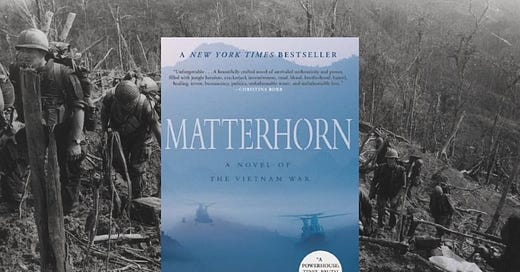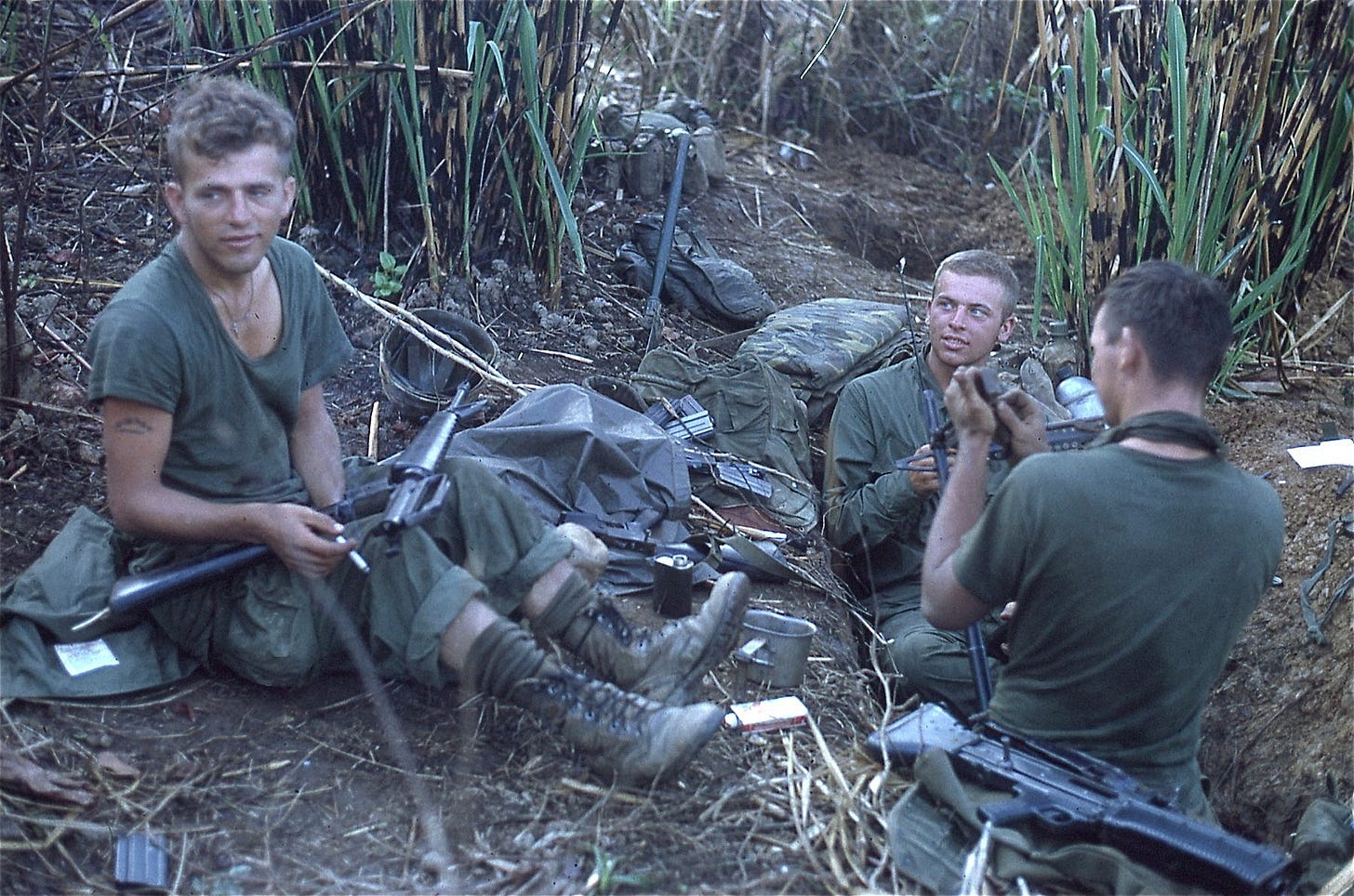Infantry: Lessons from Matterhorn and the Vietnam War
Discover how Karl Marlantes’ novel reveals timeless truths about leadership under fire and the human cost of war.
Key Takeaways
Provides a candid portrayal of the Vietnam War through the eyes of a young Marine lieutenant.
Explores themes of leadership challenges, moral conflicts, brotherhood, and the psychological toll of combat.
Highlights the disconnect between frontline Marines and higher command, exposing the impact of separation on battlefield decisions.
Offers valuable insights into small-unit tactics, the influence of terrain and weather, and the realities of jungle warfare.
Remains relevant to current military operations and leadership challenges, providing lessons in leadership, responsibility, and decision-making.
Note: Matterhorn is a fictional novel. The images in this post represent the timeframe, location, and type of unit within the storyline. The video is from an interview with the author.
“There it is.” – Karl Marlantes, Matterhorn
Karl Marlantes’ Matterhorn is an intense, fictional novel about the Vietnam War, capturing the experiences of young Marines battling a determined enemy, the unforgiving jungle, and the challenges of leadership. Matterhorn itself is a fictional name for a piece of key terrain (or a hill). The book provides a candid look at the Vietnam conflict through the eyes of a Marine lieutenant leading his platoon through brutal conditions and moral conflicts. Drawing directly from Marlantes’ personal experience as a Marine Infantry Officer in Vietnam, Matterhorn goes beyond combat to explore the psychological toll of war, the challenges of racial tension within the ranks, and the bureaucratic obstacles that Marines faced.
Keep reading with a 7-day free trial
Subscribe to The Military Reading Room - History, Strategy, and Insight to keep reading this post and get 7 days of free access to the full post archives.






